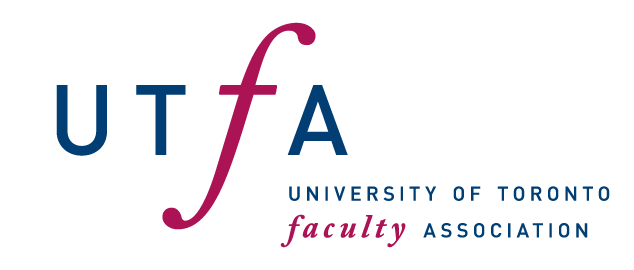UTFA is taking a three-pronged approach to the array of COVID-related workload complaints that we have received since the middle of March. Judging from member emails, the number one complaint is that workload during the crisis has been excessive. Those with children have been very negatively affected. Preparing an online course that one can be proud of is an enormous amount of work, and the learning curve is steep. There is too much work; there is not enough support. Academic freedom and academic integrity are being sacrificed.
Three-pronged approach to COVID-related workload concerns:
1. UTFA will launch an Association grievance, the details of which we will publish in the coming days.
2. UTFA will bring the matter to the bargaining table this month.
3. UTFA is urging members to use section 4.2 of the Workload Policy and Procedures (WLPP) to address their individual workload issues and/or those of their unit with their chairs and deans—as soon as possible. See the green font below.
What can you ask your unit to do?
1. Course loads for fall need to be reduced.
2. Course credit (banking) must be in play to address overwork.
3. Enrolment caps need to be lowered.
4. IT support must be increased so that instructors receive the assistance they need.
5. TA support must also match the greater need of the fall.
6. Overload stipends must be presented as an option where appropriate.
Hybrid/online teaching in the fall:
Several members have emailed UTFA to express concern about the hybrid teaching that some divisions are proposing for the fall. It involves combining online with in-person teaching. Many of our members have been asked to complete forms on how they will teach in the fall. If you do not yet know, do not feel pressured to complete the form.
Key points:
1. Some units are pushing back against hybrid teaching. In some units, faculty are insisting on the right to teach only online in the fall.
2. We believe that our members realize that we must teach in a manner that complies with provincial regulations related to COVID.
3. Being compliant does not necessarily mean that you must adopt one of the hybrid models that have been developed.
4. You have academic freedom, and therefore if you have good reasons for wanting to teach your course in a certain way, and your approach complies with regulations, then make your wishes known to your chair or dean.
The role of the workload policy (WLPP):
Here is a link to the policy. In addition, each department has its own unit workload policy. Ask your chair or dean for it.
Quoting from sections 4.1 and 4.2 of the WLPP:
“4.1 As reflected in Article 8 of the MOA [Memorandum of Agreement], faculty will not be required to teach in all three terms, nor shall they be pressured to volunteer to do so.
4.2 In considering the teaching component of normal workload, relevant factors include the following if applicable:
1. Class size;
2. The expected total number of students in all of a member's courses;
3. Course coordination and program direction;
4. The mix of course levels (introductory, upper year, graduate, etc.);
5. The nature of the course (e.g., team-taught, inclusion of writing intensive or critical skills components, first-year seminars, foundation courses, etc.);
6. Mode of delivery;
7. Contact hours, including in-class and outside of formal scheduled class time; Advising duties or equivalent;
8. Tutorial, lab, or studio direction or equivalent;
9. Supervision of teaching assistants or equivalent;
10. Marking/grading responsibilities or their equivalent;
11. Course preparation, including but not limited to extraordinary course preparation such as new courses, "short notice", preparation of courses delivered by alternate modes, and for courses which are cancelled;
12. Supervision of senior essays or their equivalent;
13. Directed reading courses and independent studies courses or their equivalent; Graduate supervision, including but not limited to supervision of dissertations, theses or equivalent, and including membership on graduate supervision committees in capacities other than primary supervision.”
______________
Note the sections I have reproduced in green font. The full list is important, and, in any given year, the full list should be taken into account when workload is assigned. The sections in green are especially important during the current crisis. Language such as “Mode of delivery” (#6), “extraordinary course preparation,” and “alternate modes” (#11) should be cited by any member who believes that their workload is inequitable, excessive, or in violation of their contract. Please write to your chair or dean if you have concerns about your workload for the fall.
If your chair or dean refuses to address your workload concerns, please contact UTFA for advice: advice@utfa.org.
UTFA surveys:
Please remember to complete UTFA’s survey on COVID and working conditions (link sent on May 1). It invites feedback from members in all three streams, including UTFA’s faculty and librarians on contract. The deadline is May 11 at 11:59 a.m. You will also receive an UTFA survey on workload. There is some overlap between the two surveys. We saw patterns in the answers to the first survey that we are probing in the second. These surveys are crucial to upcoming negotiations.
Please email faculty@utfa.org with questions or concerns.
Cynthia Messenger
UTFA President
